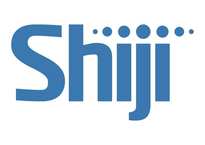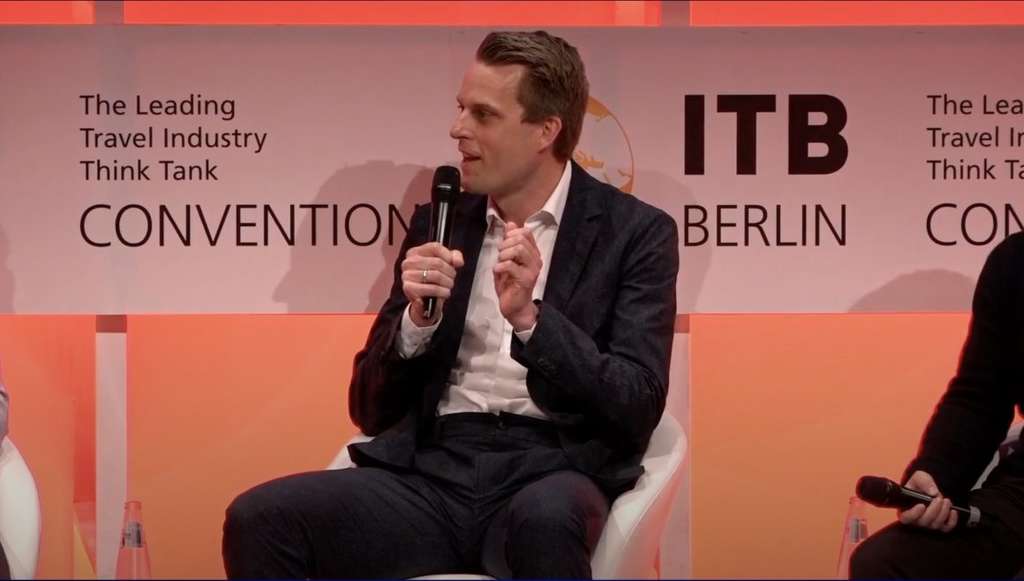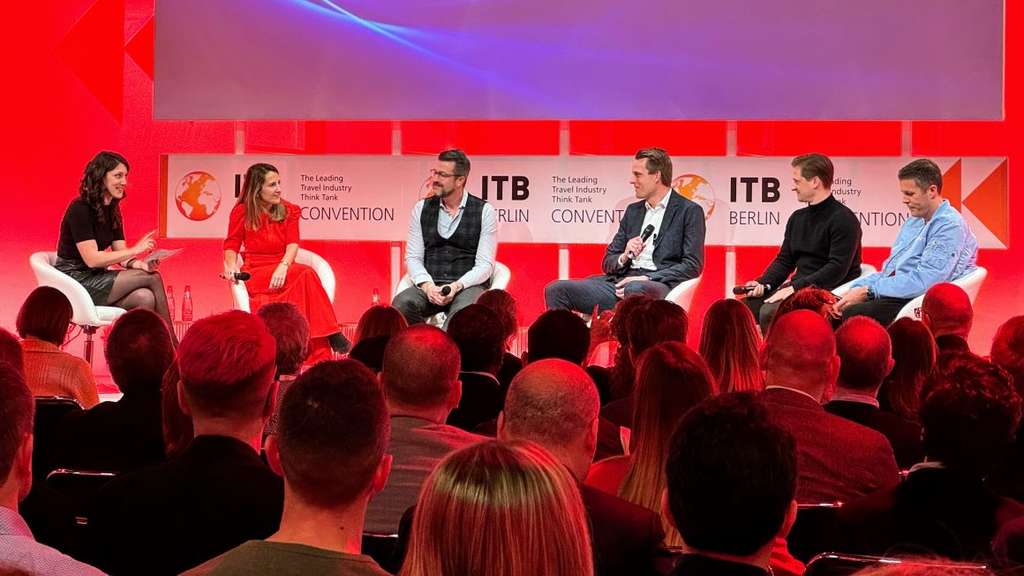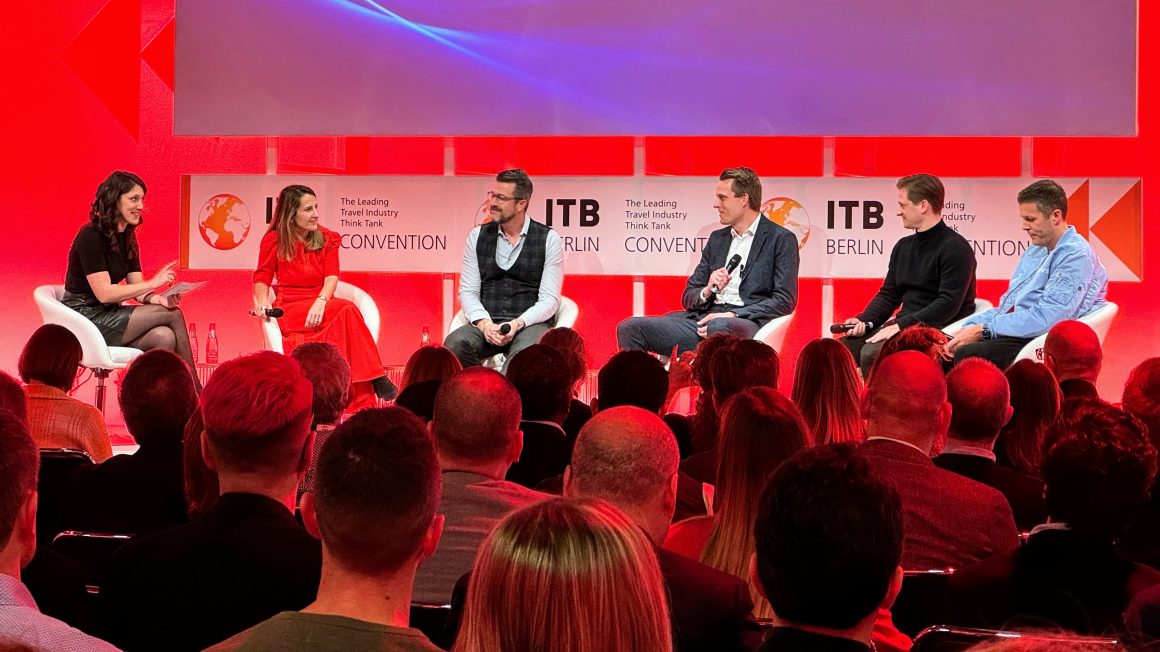[ad_1]

ITB Berlin 2024 supplied a platform for seasoned trade leaders to share insights and their predictions on the improvements destined to affect the hospitality panorama. The Hotel Technology Trends (or Hypes?) dialogue, contributed to by seasoned trade insiders Lucile CORNET (Eight Roads), Wietse Bijzeit (Shiji Group), Lucas Höfer (Ruby Lodges), Matthijs Welle (Mews) and Frank Seedorff (B&B Lodges Germany GmbH). Lea Jordan solidified her place as one in all our trade’s finest moderators by skillfully encouraging every panellist to offer sensible insights and predictions while respectfully difficult on the proper second to get that little further.
What the Consultants Stated

Wietse Bijzeit highlighted the hospitality trade’s vital second with its growing embrace of cloud technologies, marking a basis for subsequent technological progress. He emphasised the potential influence of robotics, digital identities, and the mixing of AI with massive motion fashions within the sector.
In response to Wietse, these massive motion fashions supply a groundbreaking method to improve resort decision-making by changing complicated challenges into easy, actionable insights. This means a significant shift in the direction of extra environment friendly and progressive operational methods.
Lucile Cornet, bringing a enterprise capitalist’s perspective, emphasised the essential want for accommodations to forge direct connections with visitors and transfer away from the dependency on third-party platforms that has grown over time.
She sees a future the place accommodations can rekindle private connections with visitors, considerably enhancing buyer engagement by means of personalisation.
Lucile elaborated on her funding method, stressing the worth of studying from different sectors, akin to neobanks, social media, and gaming, to grasp and cater to the altering behaviours of youthful customers.
Lea probed Lucile, questioning the comparability of those completely different markets. Lucile affirmed the relevance, pointing to the development of seamless funds inside apps and the choice for AI-driven buyer help and chat techniques over conventional telephone calls.
Frank Seedorff outlined 4 key technological areas very important for the progress of the hospitality sector. AI in customer support, knowledge platform integration, income administration automation, and company social accountability (CSR). Frank advised utilizing AI to enhance customer support and pricing accuracy, enhancing the visitor expertise.
Frank beneficial that resort chains undertake know-how that aligns with their enterprise technique and gives direct advantages. He emphasised involving the workforce in tech choices and evaluating new tech primarily based on the resort’s strengths.
Lucas Hoefer added that the resort trade is shifting in the direction of lively evaluation and utility of visitor knowledge by means of AI to boost the visitor expertise. AI is predicted to revolutionise visitor service by creating personalised experiences and making resort operations extra environment friendly.
The development in the direction of tailor-made visitor experiences is on the rise. Travellers now choose longer stays and versatile providers. Adaptable know-how, notably AI, is crucial in assembly these new client preferences.
Lucas pressured the significance of differentiating between fleeting developments and people value investing in. He suggested prioritizing clear enterprise goals and customer support objectives over following fads and beneficial strategic planning as a substitute of fast fixes with ad-hoc software program options.
He suggested accommodations to evaluate their workforce’s capabilities to resolve in the event that they need assistance from an skilled provider to implement new concepts. Understanding their capability for executing new ideas is essential to drive innovation.
Matthijs Welle emphasised investor confidence in cloud-based options inside the journey trade. He highlighted the crucial function of cloud-based techniques and APIs as foundational parts that allow the efficient use of AI, permitting accommodations to remain abreast of the evolving technological panorama.
Mat pressured the importance of investments as catalysts for technological innovation in journey, advocating for the adoption of cloud-based techniques with open APIs. Saying accommodations should adapt to technological developments and supply seamless experiences by investing in innovation.
Challenges and Change Administration
The panellists had been united in addressing the challenges posed by integrating new applied sciences into present resort ecosystems. They highlighted the problem of fragmentation throughout resort tech stacks and emphasised the significance of strategically consolidating knowledge to create a extra unified system.
The dialogue underscored that efficient change administration is essential for accommodations to understand the total advantages of recent applied sciences. Merely deciding on new instruments just isn’t sufficient; accommodations should even be able to adapting to and meaningfully adopting these applied sciences inside their operational framework.
Actionable Recommendation for Hoteliers
When requested for recommendation, the panel supplied sensible steerage for hoteliers aiming to embrace innovation, emphasising a number of key steps:
Begin with the imaginative and prescient: Decide the visitor expertise your model goals to offer earlier than exploring technological choices.
Embrace the cloud: Go for cloud-based techniques that includes open APIs to ascertain a tech stack that’s each scalable and adaptable.
Perceive your model: Acknowledge whether or not your resort’s energy lies in operational effectivity or buyer intimacy, and choose applied sciences that bolster these areas.
Personal your knowledge: Guarantee safe management over the circulation of your knowledge and your organisational constructions to maximise their usefulness.
Conclusion
Hoteliers ought to have a transparent model imaginative and prescient and choose applied sciences that align with it. Earlier than selecting know-how, they should perceive their strategic positioning – operational effectivity or buyer engagement.
The dialog highlighted the importance of incorporating change administration practices with know-how adoption. There was unanimous settlement on managing knowledge circulation and exactly understanding enterprise goals for fostering profitable innovation.
Lea once more demonstrated her knowledgeable moderation abilities, regardless of the occasional microphone glitches. Making certain a balanced dialog the place every speaker might convey and emphasise their message. Encouraging hoteliers to interact in dialogue actively, pose questions, and pursue applied sciences that supply real worth to their operations.
About Shiji Group
Shiji is a multi-national know-how firm that gives software program options and providers for enterprise firms within the hospitality, meals service, retail and leisure industries, starting from hospitality know-how platform, resort property management solutions, food and beverage and retail systems, cost gateways, knowledge administration, on-line distribution and extra. Based in 1998 as a community options supplier for accommodations, Shiji Group at this time includes over 5,000 workers in 80+ subsidiaries and types in over 31 nations, serving greater than 91,000 accommodations, 200,000 eating places and 600,000 stores. For extra info, go to www.shijigroup.com.
[ad_2]
Source link







